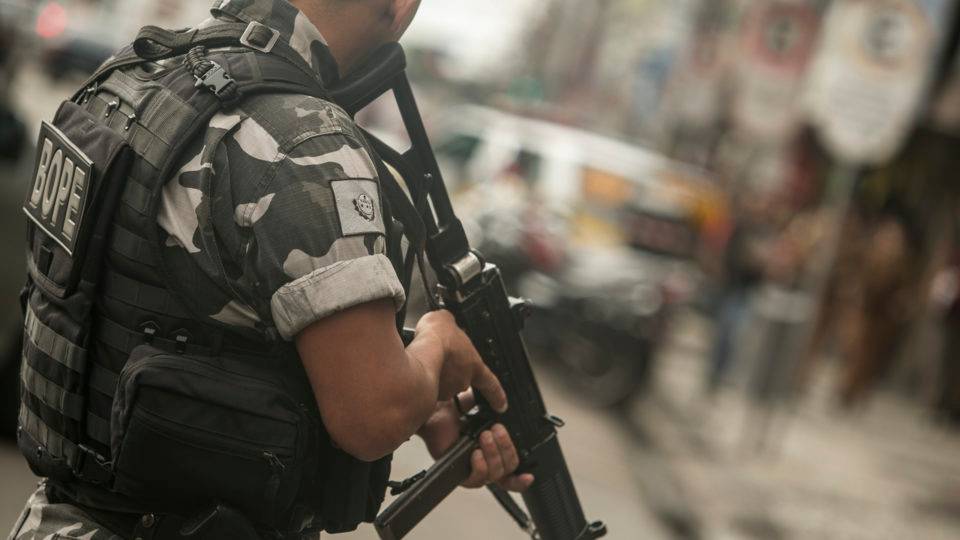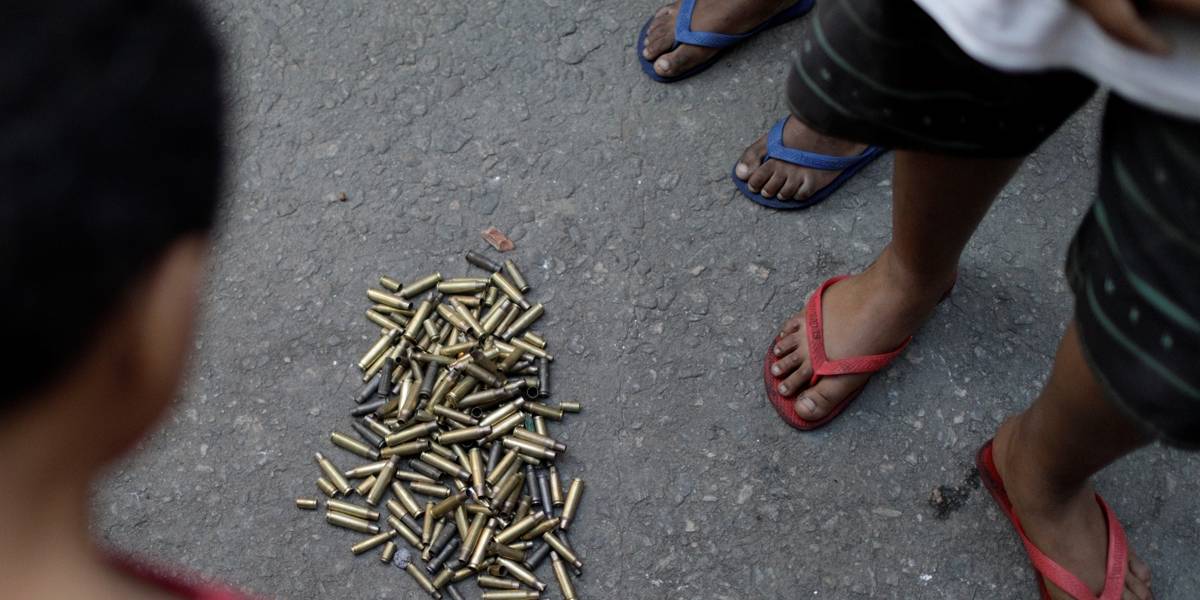RIO DE JANEIRO, BRAZIL – Rio’s Prosecutor’s Office (MP) has decided to call on the State government to take measures to reduce police lethality in the state.
From January to August of this year, there were 1,249 deaths in clashes with the police, 16 percent more than the 1,075 that occurred in the same period of 2018, according to data released by human rights organizations and specialists in public safety, who met on Tuesday, October 8th, with members of the MP to urge a stronger position on the issue.

“We have already sent letters to the secretaries of the State Police [Colonel Rogério Figueiredo] and Civil Police [chief inspector Marcos Vinícius de Almeida Braga] and to the Governor [Wilson Witzel] demanding measures to be taken to reduce police lethality in Rio de Janeiro.
“They have 30 days to provide an answer. If it is not presented, we will reiterate it with a shorter deadline. If nothing is presented, then we will proceed to another stage, which is the power to recommend a plan to reduce this lethality. And if this is not achieved, we will take judicial measures,” said prosecutor Andrea Amin, coordinator of the Public Safety Specialized Action Group (GAESP) of the Prosecutor’s Office.
According to the prosecutor, a recent survey released by the MP on police performance in the state showed that there is no direct relationship between an increase in police lethality and a decrease in the crime rate.
“This has not been proven by the research. There is a very large variance. In a certain region, the police kill more, and homicide decreases, armed robbery decreases, but not other crimes. In another [region], [the police] kill less, and crime decreases. In other [regions], it kills less, and crime increases. In other words, there is no linear pattern.”
“The rhetoric that ‘we are going to fight and this will necessarily lead to a decrease in the number of robberies, homicides, etc.’ is not supported by data analysis,” said Andrea Amin.
The executive director of Amnesty International in Brazil, Jurema Werneck, who attended the meeting, cautioned about the growing number of deaths resulting from the clashes involving police officers.
“We are experiencing a serious public safety crisis, and police lethality data are only growing and breaking records in Rio de Janeiro. Our coming to the MP was to demand the fulfillment of its constitutional mission. We presented points to make the MP act in time, to prevent, solve and restrain the rhetoric of public authorities that seem to further encourage violence.”
“We left with high expectations. The MP is committed to opening communication and action channels [in cases of denunciations]. We expect them to take immediate action,” Werneck said.

Public safety expert Sílvia Ramos, who also attended the meeting with prosecutors, said it is no longer necessary to gather data to know that more than 1,500 people were killed last year by police in the state of Rio alone.
“[That] exceeds standards anywhere in the world. In the United States, with 300 million inhabitants, last year police killed 800 people. Whereas the police in Rio de Janeiro, with 17 million inhabitants, killed more than 1,500.”
“We collected massacres – there were six or seven last year and this year. We don’t have any reports from the MP for these massacres. Who is monitoring this? The police themselves do not investigate the police killings,” Sílvia said.
“We came to the MP to urge it to be more active as an independent body overseeing the police. We trust that the MP can and should do this. We are experiencing an escalation of police violence,” she added.
The meeting attendees delivered a letter to the MP, with suggestions and demands on the subject.
Answers
The secretariats of the State and Civil Police and the government of Rio de Janeiro were sought to comment on the MP’s demands on police lethality. The government of Rio replied that the state security policy is based on intelligence, investigation, and equipment of the Civil and State Police and that the main goal of operations is to locate criminals and seize weapons and drugs, with strict enforcement protocols, and always with the concern of preserving lives.
“All deaths resulting from the intervention of a public official are investigated. If any excess is proven, the punishment provided for by the law is enforced. Data from the Institute of Public Safety (ISP) show the results of the public safety policy effort. Since the beginning of the year, the numbers of murders and violent crime lethality have dropped for the eighth consecutive month, when compared to the same period last year,” the state government said in a statement.
Source: Agência Brasil

